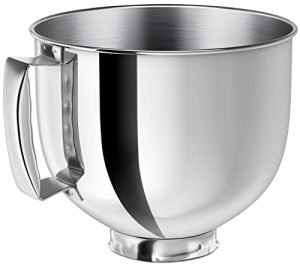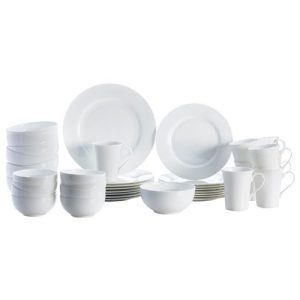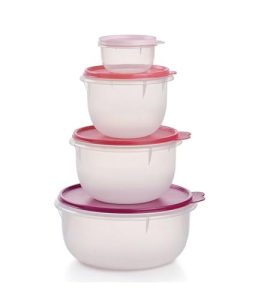Imagine waking up to the aroma of freshly brewed coffee, ready to kickstart your day. But have you ever wondered if your trusted coffee maker could be hiding something sinister?
It’s easy to overlook the potential health risks lurking in your kitchen. You might be surprised to learn that your coffee maker could be making you sick. Before you pour your next cup, let’s delve into the hidden dangers and what you can do to keep your coffee ritual safe.
Stay with us as we uncover the truth behind this everyday appliance and empower you with essential tips to protect your health.
Common Issues With Coffee Makers
Many enjoy coffee for its rich flavor and boost of energy. But coffee makers might have hidden dangers. Some common issues can affect your health. Knowing these issues helps you enjoy safe coffee.
Bacteria And Mold Growth
Coffee makers can be a breeding ground for bacteria and mold. The warm, moist environment is perfect for them to thrive. If not cleaned regularly, bacteria can grow rapidly. Mold can also form inside the machine. Both can lead to health problems. Regular cleaning helps prevent these issues.
Chemical Residue Concerns
Some coffee makers use plastic parts. Over time, these can release chemicals into your coffee. These chemicals might affect your health. Older machines may also have metal parts that rust. Rust can mix with the coffee, causing potential issues. It’s important to check your coffee maker for any chemical residues.
Impact Of Poor Maintenance
Poor maintenance is a common issue with coffee makers. Neglecting regular cleaning leads to buildup of coffee oils and residue. This buildup can affect the taste and quality of your brew. It might also harbor bacteria, risking illness. Proper maintenance ensures safe and tasty coffee.

Credit: affordableremediation.com
Health Risks Associated
Coffee is a beloved beverage for many, offering a comforting routine to start the day. However, not cleaning your coffee maker regularly can pose health risks. Let’s explore the potential health issues that can arise from a neglected coffee machine.
Respiratory Problems
Did you know that your coffee maker can be a breeding ground for mold and bacteria? These microorganisms thrive in the warm, damp environment inside your machine. When you brew your coffee, tiny mold spores can become airborne, potentially causing respiratory issues.
If you’ve experienced unexplained coughing or sneezing near your coffee machine, it might be time to give it a thorough cleaning. Consider using white vinegar for a deep clean to reduce the risk of mold. You’d be surprised how much better your air quality can be with a little maintenance.
Stomach Upsets
Have you ever felt queasy after sipping your morning brew? Dirty coffee makers can harbor bacteria like coliform, which can lead to stomach discomfort. These bacteria can linger in parts of your machine you rarely think about, like the water reservoir or the coffee pot.
Regular cleaning can help prevent these stomach upsets. Make it a habit to wash all removable parts of your coffee maker after each use. If you’ve ever felt off after coffee, a cleaner machine might just be the solution.
Allergic Reactions
Allergens are another concern with unclean coffee makers. Mold and dust can trigger allergic reactions in sensitive individuals. Symptoms like itchy eyes, runny nose, or skin irritation might be more common than you think.
Are you noticing these symptoms more often at home? It could be your coffee maker. Regular cleaning and maintenance can help minimize allergens, improving your overall well-being.
Have you ever thought about how a simple appliance could impact your health? Consider setting a reminder to clean your coffee maker regularly. A little effort can go a long way in ensuring your coffee habit remains a healthy one.
Identifying A Clean Coffee Maker
A clean coffee maker ensures healthy and delicious coffee. Many people overlook the importance of maintaining their coffee machines. Dirty coffee makers can harbor bacteria and mold. These contaminants can make you sick. Knowing how to identify a clean coffee maker is crucial.
Signs Of Contamination
Check your coffee maker for unusual smells. A foul odor indicates mold or bacteria. Look for visible stains or residue. Brown or white spots mean contamination. Inspect the coffee maker’s water reservoir. Cloudy water is a bad sign. Watch for slow brewing. It suggests clogging or dirt buildup.
Regular Cleaning Indicators
Regular cleaning keeps your coffee maker safe. Use vinegar or baking soda once a month. These natural cleaners remove buildup effectively. Clean the carafe after each use. This prevents residue from forming. Wipe the exterior weekly. A clean surface means fewer germs. Check the filters often. Dirty filters affect the taste and healthiness.
:strip_icc()/How_to_clean_coffeemaker_0220-Primary-d0c8d75c767a4d04a5b92b77d6db808c.jpg)
Credit: www.bhg.com
Proper Cleaning Techniques
Many coffee lovers worry about their coffee maker making them sick. It’s not the coffee. It’s the germs and bacteria hiding inside the machine. Cleaning your coffee maker correctly can prevent this. A regular cleaning routine is essential. It ensures your coffee is safe and delicious. Let’s explore some effective cleaning techniques.
Daily Maintenance Tips
Rinse the coffee pot daily. Use warm water and mild soap. Wipe down the exterior with a damp cloth. Remove any coffee grounds after each use. This prevents mold and bacteria. Let all parts dry before reassembling. Moisture invites germs.
Weekly Deep Cleaning
Once a week, give your coffee maker a deep clean. Empty the water reservoir. Fill it with equal parts water and white vinegar. Run a brew cycle without coffee grounds. This removes mineral build-up. Rinse by running two cycles with fresh water. Clean the filter basket and drip tray with soapy water. Let them dry completely.
Using Natural Cleaning Agents
Natural agents can effectively clean your coffee maker. Lemon juice is a good alternative to vinegar. It leaves a fresh scent. Use baking soda to scrub tough stains. It’s gentle yet powerful. These natural cleaners are safe and eco-friendly.
Choosing A Safe Coffee Maker
When you think about your morning cup of coffee, you probably imagine that warm, comforting aroma filling the kitchen. But have you considered whether your coffee maker could be affecting your health? Choosing a safe coffee maker is crucial to ensure that your beloved coffee ritual doesn’t come with unintended health risks. By paying attention to the materials, cleaning features, and brand reputation, you can make a more informed decision.
Materials To Avoid
The materials in your coffee maker can play a significant role in your health. Some coffee makers are made with plastic components that might leach harmful chemicals like BPA into your brew. Opt for coffee makers made from stainless steel or glass, which are safer alternatives. A friend of mine recently switched to a glass French press after learning about the potential hazards of plastic, and she swears her coffee tastes better too.
Features For Easy Cleaning
Let’s face it, cleaning your coffee maker is not the most exciting task. Yet, neglecting it can lead to mold and bacteria growth, which could make you sick. Look for coffee makers with removable parts and dishwasher-safe components to make cleaning less of a hassle. Some models even come with self-cleaning features, saving you time and effort. Regular cleaning ensures that each cup you brew is as fresh and safe as the last.
Recommended Brands
Choosing a reputable brand can give you peace of mind. Brands like Breville, Technivorm, and Chemex are well-known for their commitment to quality and safety. They often use materials that are free from harmful chemicals and design their products with user-friendly cleaning features. Have you ever considered how the brand of your coffee maker might impact your health? Investing in a reliable brand can make all the difference.
By choosing a coffee maker that’s safe, easy to clean, and from a trusted brand, you’re not just investing in a better cup of coffee—you’re investing in your health. The next time you shop for a coffee maker, remember these key factors to ensure that your morning ritual remains a safe and enjoyable part of your day.
Expert Opinions And Studies
Many wonder if coffee makers can make you sick. Experts have conducted studies to uncover the truth. Some findings might surprise you. Understanding these insights can help ensure your coffee habit is safe. Let’s delve into what experts say.
Research Findings
Recent studies have highlighted some concerns. Coffee makers can harbor bacteria and mold. This happens if not cleaned regularly. Warm, damp environments are ideal for germs. The reservoir and spout are common spots. Studies show significant microbial growth in neglected machines. These microbes can cause sickness in some cases.
Expert Recommendations
Experts suggest cleaning your coffee maker often. A monthly deep clean is ideal. Use vinegar and water for best results. This combination effectively kills bacteria. Pay attention to the carafe and reservoir. Let them dry thoroughly after use. Regular maintenance keeps your coffee maker safe. It also improves the taste of your coffee.

Credit: www.instagram.com
Frequently Asked Questions
Can My Coffee Maker Be Making Me Sick?
Yes, a dirty coffee maker can make you sick. Mold, bacteria, and old coffee oils can accumulate inside. Regular cleaning prevents these health risks. Use vinegar or a coffee maker cleaner for best results. Always follow your manufacturer’s cleaning instructions to ensure safety and optimal performance.
What Are The Symptoms Of Coffee Machine Mold?
Coffee machine mold symptoms include musty odors, bitter taste in coffee, visible mold spots, and potential health effects like allergies. Regular cleaning and maintenance prevent mold growth, ensuring a fresh coffee experience. Mold can thrive in damp, neglected areas of the machine, affecting both flavor and health safety.
Can You Get Legionella From A Coffee Machine?
Legionella can grow in coffee machines if not properly maintained. Ensure regular cleaning and descaling to prevent bacteria buildup. Use filtered water and keep the machine’s temperature above 60°C to minimize risk. Regular maintenance is essential for safety.
Are Coffee Makers Bad For You?
Coffee makers are generally safe if used correctly. Potential risks arise from improper cleaning or using faulty machines. Regular maintenance ensures safety. Check for BPA-free materials to avoid harmful chemicals. Enjoy your coffee while prioritizing cleanliness and machine quality.
Conclusion
Coffee makers can pose health risks if not cleaned properly. Mold and bacteria thrive in damp environments. This can lead to sickness. Regular cleaning keeps your coffee maker safe. Avoid forgetting this essential step. Use vinegar or commercial cleaners for effective results.
Clean all parts thoroughly. It ensures your coffee remains delicious and safe. Stay healthy by maintaining your coffee machine. It’s worth the effort. Your morning brew will taste better. Plus, you’ll enjoy peace of mind. Make cleanliness a routine. Enjoy coffee without worry.



